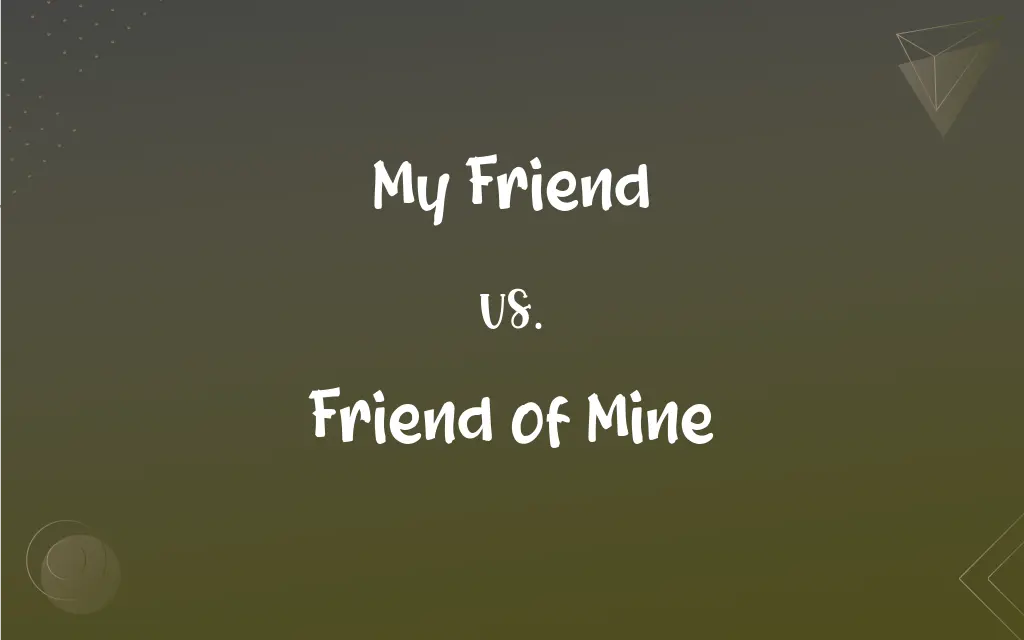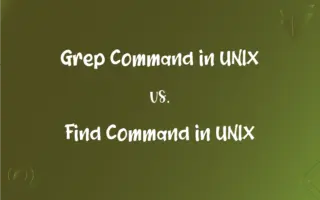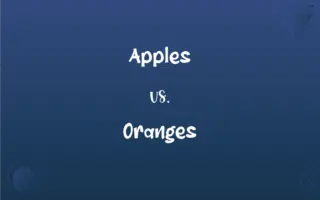My Friend vs. Friend of Mine: What's the Difference?
By Aimie Carlson & Harlon Moss || Published on June 30, 2024
"My Friend" directly denotes a personal relationship, emphasizing the speaker's connection, while "Friend of Mine" subtly implies possession, suggesting a more indirect or broader association.

Key Differences
"My Friend" is straightforward, used to express a direct relationship with someone. It's often employed when introducing or referring to someone in a conversation, indicating closeness or personal connection. "Friend of Mine," however, conveys a sense of belonging without direct possession, hinting at a variety of friends the speaker may have, and is slightly more formal or detached.
When saying "My Friend," the speaker typically implies a closer, perhaps more exclusive or intimate friendship. This expression is common in both formal and informal contexts but tends to be more direct. On the other hand, "Friend of Mine" might suggest one of many friends, used in contexts where the speaker wants to indicate friendship without specifying closeness.
The use of "My Friend" often comes with an immediate and personal tone, making it suitable for introductions or when the friend's identity is known to the listener. "Friend of Mine" can introduce ambiguity, suitable when the friend's identity is not the focus or is unknown to the listener.
"My Friend" can emphasize the speaker's personal investment or feeling towards the friend, often used to highlight specific qualities or shared experiences. "Friend of Mine" can imply a broader spectrum of friends, possibly used when the speaker has many friends and does not wish to single out one as more significant than others.
In writing, "My Friend" can denote a specific, identified individual, making it clear who is being referred to. "Friend of Mine" is more flexible, allowing for a broader interpretation that can include acquaintances or less intimate friends, useful in narratives or descriptions where direct relationships are less central.
ADVERTISEMENT
Comparison Chart
Directness
Direct relationship
Indirect, implies one of many
Formality
Both formal and informal
Slightly more formal
Intimacy
Implies closer, possibly exclusive
Implies a broader spectrum of friendships
Contextual Suitability
Suitable for introductions and direct references
Suitable when the friend's identity is secondary
Implication of Relationship
Emphasizes personal connection and investment
Suggests a sense of belonging, less personal
ADVERTISEMENT
My Friend and Friend of Mine Definitions
My Friend
Expresses closeness and personal connection.
My friend helped me move last weekend.
Friend of Mine
Used when not specifying the closeness of the relationship.
A friend of mine is visiting from out of town.
My Friend
Suggests an emotional or significant bond.
My friend always supports me in tough times.
Friend of Mine
A term implying a friend among others, less directly possessive.
A friend of mine writes novels.
My Friend
Used to introduce someone in a close relationship.
This is John, my friend from college.
Friend of Mine
Indicates one of potentially many friends.
A friend of mine used to live there.
My Friend
A term denoting a personal and direct relationship with someone.
I went to the concert with my friend.
Friend of Mine
Suggests a broader, potentially less intimate relationship.
A friend of mine from work recommended this book.
My Friend
Indicates a specific individual as a friend.
My friend is coming over for dinner.
Friend of Mine
Can imply a casual or less defined friendship.
A friend of mine gave me this recipe.
FAQs
Is "My Friend" more personal than "Friend of Mine"?
Yes, "My Friend" tends to be more personal, indicating a closer relationship.
Can "Friend of Mine" be used to refer to close friends?
Yes, it can, but it doesn't explicitly convey the closeness that "My Friend" does.
Does "Friend of Mine" imply a less significant relationship?
Not necessarily less significant, but it can imply a broader or less exclusive friendship.
Is there a formal context where one is preferred over the other?
"Friend of Mine" might be slightly more formal, but both can be used in formal and informal contexts.
Do these phrases have different implications in different cultures?
The nuances might vary culturally, but the basic distinctions are generally understood.
Can "My Friend" and "Friend of Mine" be used interchangeably?
While they can be used in similar contexts, they carry different nuances.
Is "My Friend" suitable for introductions?
Yes, it's very suitable for direct introductions.
Can the choice between these phrases affect the tone of a story or narrative?
Yes, choosing one over the other can subtly change the tone or implication of relationships in narratives.
Can "Friend of Mine" suggest a sense of mystery or anonymity?
Yes, it can imply that the friend's identity is not the central focus.
Is "My Friend" used more in spoken language?
It's commonly used in both spoken and written language, depending on the context and desired emphasis.
Does using "Friend of Mine" make a conversation sound more formal?
It can, due to its less direct implication of possession and relationship.
Does the preference for one phrase over the other vary by age or generation?
Preferences can vary, but there's no clear division by age or generation; it's more about personal or situational choice.
Can "Friend of Mine" be seen as more polite in some contexts?
Yes, it can be considered more polite or formal, especially in contexts where implying possession is less appropriate.
Can "Friend of Mine" be used to downplay a relationship?
Yes, it can be used to make a relationship seem less exclusive or intimate.
Is one phrase preferred in academic writing?
Neither is particularly preferred in academic writing unless referring to a personal anecdote where the relationship is relevant.
Is "My Friend" more commonly used in American English?
Both phrases are common, but "My Friend" might be more directly used in American English.
Does the use of these phrases differ in digital communication?
Both phrases are used in digital communication, but "My Friend" might be more common in direct messages, while "Friend of Mine" could be used in more public or less personal contexts.
Are there scenarios where "My Friend" is inappropriate?
It could be seen as too personal or direct in very formal or professional contexts where the nature of the relationship is not the focus.
How do these phrases reflect the speaker's personality or relationship style?
The choice might reflect the speaker's approach to relationships, with "My Friend" indicating closeness and "Friend of Mine" indicating a broader or more inclusive approach to friendships.
How do these phrases affect the listener's perception of the friendship?
"My Friend" may suggest a closer bond to the listener, while "Friend of Mine" may suggest a wider circle of friends without specifying closeness.
About Author
Written by
Aimie CarlsonAimie Carlson, holding a master's degree in English literature, is a fervent English language enthusiast. She lends her writing talents to Difference Wiki, a prominent website that specializes in comparisons, offering readers insightful analyses that both captivate and inform.
Co-written by
Harlon MossHarlon is a seasoned quality moderator and accomplished content writer for Difference Wiki. An alumnus of the prestigious University of California, he earned his degree in Computer Science. Leveraging his academic background, Harlon brings a meticulous and informed perspective to his work, ensuring content accuracy and excellence.






































































